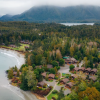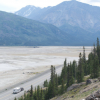Search KelownaNow
- News
- Opinion
- Lifestyle
- Business
- Sports
- Podcasts
- Columns
- More
- Advertise
- Real Estate Listings
- Good News
- Energized
- Big White Ski Resort
- Best of
- Contests
- Contact Us
- Publications
- Cities
- Auctions
- Subscribe
- Events
Array
(
[Site] => Array
(
[id] => 1
[url] => www.kelownanow.com
[name] => KelownaNow
[created] =>
[modified] => 2024-02-02 09:42:16
[is_ecommerce] =>
[google_id] => UA-3724500-13
[timezone] => America/Vancouver
[logo] => 576d5cfb-4230-47a5-b7e3-301fd8a83521.png
[logo_white] => 5de056eb-a144-444b-ab79-4bc3d8b0b5a6.png
[merchant_id] =>
[weather_id] =>
[facebook_api_key] => 197376200331145
[facebook_app_secret] => 5813c93208cbff19e6ac0f0f1c634b5e
[rottentomatoes_api_key] =>
[city] => Kelowna
[url_nice] =>
[background_image] => 650224f06329a.jpg
[background_start] => 2023-09-30 00:00:00
[background_end] => 2023-10-01 23:45:00
[background2_image] => 6452d1e96e177.png
[background2_start] => 2023-05-26 14:00:00
[background2_end] => 2023-05-28 14:00:00
[alert] =>
[square_logo] => 57c0516d-21f8-4b0e-b782-0c7ed8a83521.jpg
[spring] => 576d5cfb-2634-42a4-a0f8-301fd8a83521.png
[summer] => 576d5cfb-b52c-4103-8e9a-301fd8a83521.png
[fall] => 576d5cfb-01bc-4be4-94cb-301fd8a83521.png
[winter] => 576d5cfb-4230-47a5-b7e3-301fd8a83521.png
[homepage_id] => 444
[show_in_navigation] => 1
[navigation_slug] => june_2019
)
)
1
















